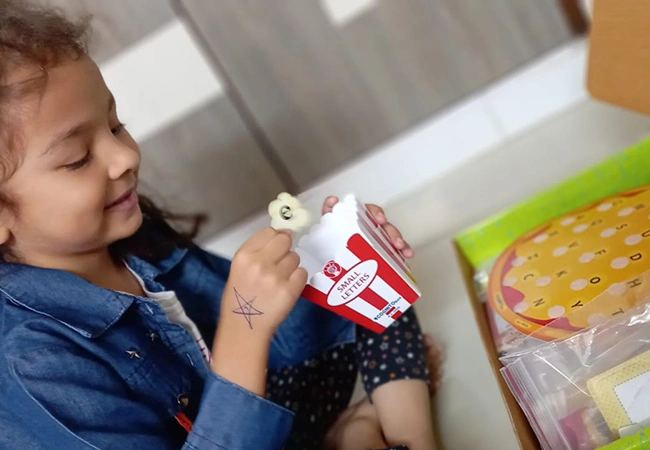Skill Set

At Cognitobox, we firmly believe that learning should never feel like a burden for children. In fact, we think that play is one of the most important ways for kids to learn and develop. When children play, they have fun while also improving their cognitive, language, intellectual, social, and emotional skills. Play is particularly valuable because it helps build a child’s self-worth and confidence by giving them a sense of their own abilities.
At the same time, we know that learning and play can go hand-in-hand. By transforming developmental milestones into tiny, captivating learning objectives, we create enchanting games and activities that make learning as enjoyable as playing. Our ultimate goal is to make learning so much fun that children seek it, even when they’re outside of the classroom. With our approach, kids can absorb new information and skills without even realizing it, all while having a great time.

01. Working memory

02. Attention and Focus

03. Logical Reasoning

04. Processing speed

05. Visual perception

06. Spatial Intelligence

07. Pattern Understanding

08. Fine motor skills

09. Numbers , counting, cardinality

10. Alphabets

11. Mathematics

12. Reading

13. Color

14. Shapes

15. Pre-writing practice

16. Scientific thinking

17. Strategy and planning

18. Lateral and Directional Understanding

19. Environmental awareness

20. Pretend play



